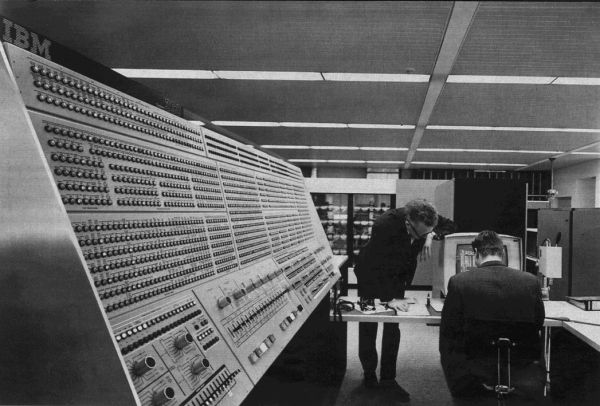Open Your Eyes
The internet – a bold new frontier in media. Not only does it escape the necessity of being confined to a single channel to receive information, but it also enables users to be publishers. Radio and television couldn’t do this. Yet after an even decade of the internet changing our worldview, have we really learned anything? No, I’d argue — because our problem exists on such a basic level of thought that we cannot address it by changing methods. Our problem is a series of assumptions in the minds of most people.
There’s an old parable about not seeing the forest for the trees; if all you see is a tree, you might not notice that it is surrounded by other trees. It’s the same way with the forest of symbols we’ve created for ourselves in modern times. In an effort to be well-educated, to have political power and important opinions, we the people have inundated ourselves with information we cannot digest. Overwhelmed, we turn toward the nearest comforting view that seems to encompass it all, and thus we stumble from democracy to dictator with no thought of actually ending this situation.
Symbols surround us but even more, become part of our identities. If we are liberals, we must – must! – defend certain ideas. If we are conservatives, who are just conventional liberals these days, we have a different set of symbols we must use to process any incoming data. If we do not, our personal identity is at stake, and since we base our self-worth on that external construct determined as much by our peers as by our own actions, for our identity to be at stake means that we feel our own self-worth is in doubt. We might have to suicide if judged unfit by the herd, which graciously grants us membership and thus makes us feel worthy in the first place, rising above the machines that populate our skylines…
This is why people will stumble, lie, dissemble, etc. in order to avoid seeing the truth. The truth is plain, but they feel they cannot change it or that to face it would destabilize some aspect of their own lives, especially their egos, so they campaign against it. But really it’s quite simple. Societies decay much like any social group. Initial impetus being gone, the members campaign for personal power instead of collective success. This leads them to adopt ironclad ideas like capitalism and egalitarianism, but basically what’s going on is an “every man for himself” mentality: it’s not social behavior, but complete parasitism. There is no contact with reality.
Our current Iraq war is an example. People ramble on for hours about paranoid conspiracies and lies and falsified data. They forget the truth is obvious: this war makes powerful and wealthy people happy, probably for a number of reasons. Is it Israel? Certainly. And oil interests? Probably. What caused it? Convenience. Same way with multiculturalism: there is no conspiracy behind it; it is profitable, however, to import people to a foreign culture and hold them hostage for a generation or two. And then you can sell luxury services to the indigenous population as they try to avoid the ferment of violence that is brought of conflict cultures, especially when some are bred for tribal hunting societies and others have evolved as a result of established, educated agrarian/artistan cultures.
If I had one word of caution for someone trying to make sense out of the human situation today, especially while using the internet, it would be this: cynicism. I mean that in the oldest sense, which involves a willingness to look past what people claim is their motivation to their actual aims, a cui bono before all other questions. Look at people for what they are: scrabbling animals who are unaware of the world around them yet doing anything they can to gain power within it. Look at your leaders – do they lead, or make promises? Then look at how your society is structured: equality of the individual so that each can gain as much power as possible. Do you need conspiracy theories anymore?
Tags: conspiracy theories, deception, liberalism, media, self-deception










